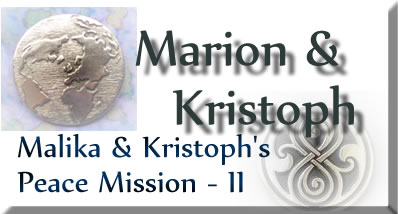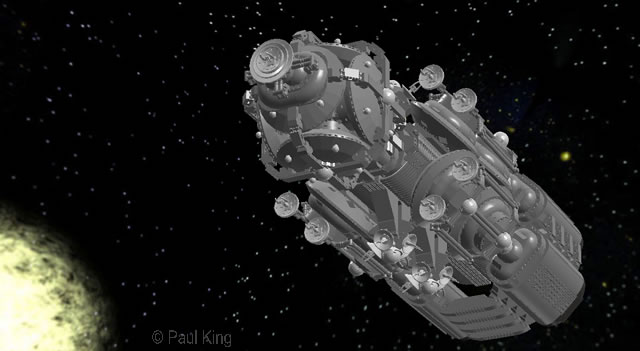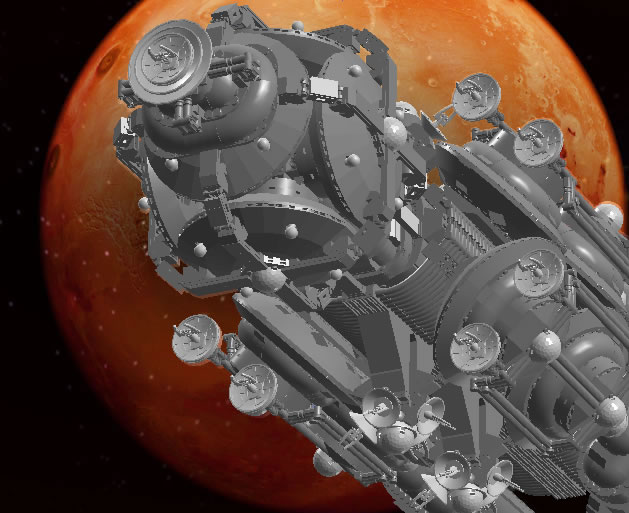

The Ratanians had been more than happy for the two delegates from the Shaddow Proclamation to visit their world, where they eagerly allowed them to examine the digital archives recording the history of their superiority over the Arusians and the mountains of legal documents codifying their inalienable right to oppress the inferior race.
“Yes, I’ve seen ownership papers for slaves in many societies,” Kristoph noted. “There’s a library in Liverpool with hundreds of records of the sale of people classed as ‘property’ and lots of leather-bound books that ‘scientifically’ prove that such people are not fully human and incapable of being anything more than slave labour. That’s the species my dear wife comes from making such hideous judgements. Most of them came to realise their horrendous mistake, especially those in placesike Liverpool with a direct link to that history.
Malika confessed that he found it easier to understand two distinct species like the Ratanians and Arusians in a master-race/slave race than members of the same race on the same planet.
Not that understanding of the situation meant that he in any way approved of it.
“One section of humans convinced themselves that the other was less human than they were,” Kristoph said. “Our water-slurping acquaintances have done much the same. The difference is that I can’t imagine the Ratanians reaching the same conclusions without the sort of forced brainwashing we can’t possibly condone.”
While being anxious, even eager, to press upon the delegates their version of the truth, and apparently certain that any intelligent visitors would see the logic and the moral correctness of their position, the Ratanians put as many obstacles as possible in the way of the planned visit to the Arusians homeworld, even suggesting that it would be dangerous. The Arusians had forced the Ratanians to leave the planet some twenty years ago, and without any form of civilising control might well be completely savage by now. Cannibalism was strongly hinted at.
But the delegates insisted and a shuttle craft was arranged.
The ‘savage’ Arusians met the delegates with surprisingly civilised welcome and understanding of why they were there. They brought the visitors from the designated shuttle landing place to a curious looking vehicle like a hovercraft with a protective bubble of tinted glass over the seats.
Which was exactly what it was.
The visit began with a tour of the largest of the reconstructed towns where small houses that made Kristoph think of the word ‘adobe’ sheltered the people. They were basic, but comfortable, with necessary amenities like clean water and waste removal, as well as electricity provided by solar roof panels.
According to the Ratanians, the Arusians had been wandering nomads living in rough tents before they attempted to civilise them. According to the Shaddow Proclamation the Arusians used to have very grand buildings with luxurious interiors. Nothing remained of their architectural history thanks to the Ratanian total destruction of their way of life.
“Please join us in a meal at the Senate house,” said Elder Paxez, who had shown them the post-invasion efforts to restore medical facilities to the people with a clean, well-organised but small hospital and a kindergarten where infant Arusians were cared for while their parents worked for the improvement of their lives.
“The Ratanians claim you have no technology,” Malika commented as he noted the various ways solar energy – an abundant resource on a hot desert planet – was used.
“The Ratanian word for technology translates only as ‘military technology.” Elder Paxez explained, a note of justifiable disdain in his voice. “Annything invented for peaceful use is dismissed. We never have had an army, let alone technology for military use, so they saw us as primitive and weak. Unfortunately, the latter proved true when they attacked us. We had no means to fight back.”
“I understand,” Kristoph said. It was, certainly, naive of the Arusians to have no military capability of any kind. He knew of many pacifist races who nevertheless had a defensive, peace-keeping army. It was more or less Gallifreyan policy, after all. He had fought the Sarre before his first regeneration because they tried to threaten their neutrality.
Still, from all he had heard, naivety was all that could be laid against the Arusians. The attack by their neighbouring world was unprovoked and they had suffered in immeasurable ways under conquest.
The Senate was one of the few substantial buildings other than hospitals and schools.
“All this was rebuilt in the twenty years since we retook our planet,” Paxez explained. “There are many other settlements around the planet, except for the equatorial areas which were always too arid for any life.”
Another solar panel array made the Senate a cool, air-conditioned building with committee rooms and offices all surrounding a large round hall with concentric rings of low benches.
“We govern by consensus. All opinions are equally valid. The Prime Elder guides the debate and has a casting vote in case of stalemate.”
That sounded as good a method of government as any Kristoph had come across in his intergalactic travels.
There was no sitting of government today. Instead the benches were filled with Elders and workers to welcome the two delegates who were invited to sit amongst them. Presently everyone was served a meal of a highly flavoured stew and a flat bread with a taste of subtle spices.
“This is stynum,” explained the Elder. “It is a nourishing staple food which we have always been able to grow in hydroponic pods in the desert. The Ratanians restricted the food production and kept the people hungry, but now we have our independence we have increased production and everyone eats their fill. There is no hunger now. Nor is there greed. Everyone, from elders to farm workers eats the same food. We have varieties of recipes and flavourings, of course. This is one of the most popular dishes.”
“So you have been able to improve the quality of life for Arusians since you regained sovereignty?” Malika confirmed.
“Food, shelter, education, healthcare,” the Elder confirmed. “The essentials of life. The fundamentals of any society. Next, we hope, if a sustained peace can be assured, to begin to restore the rich culture of art and literature, theatre, music, that were stifled by the Ratanians.”
“An honourable ambition for your people,” Kristoph agreed. “Will that be easy to do? I understood that even basic literacy was banned for a dozen or more generations. It will be an uphill struggle.”
“It is. But even at the worst oppression, we taught our children in secret. Lessons scratched in sand, easily covered up, can still be learnt. We were never as ignorant as the Ratanians thought us.”
Kristoph resisted the urge to say something like ‘Well done’ which would seem patronising. But he wanted to say something to convey his admiration for people who never gave up.
“How can....” Malika began, trying to phrase a question. “How can we help you? Not just the Shadow Proclamation. It is clear enough what you need from them. But as people who have seen what has happened here... How can we help?”
“You haven’t seen what happened, yet,” an Elder identified as Marduz, the Minister of Education, said sharply. “When you HAVE seen, what we need is for you to remember what you will see and tell the truth of it to anyone who thinks there is another point of view about our history.”
Neither Kristoph nor Malika quite understood what he meant, just then. But after the meal, they were cordially invited to see the historical records of Arusia.
“We have been told more than once that you have no historical records,” Malika pointed out as Elder Marduz brought them down several flights of stairs to another chamber, possibly directly beneath the Senate. “We are glad to know that isn’t true.”
“History can be forgotten, misunderstood, rejected,” the Elder said emphatically. “To prevent that, our young generations, especially those born since our liberation, are invited to come here to the Senate and see for themselves what happened to their ancestors when the Ratanians came to destroy our peace. There is no compulsion. It is not a forced education. They come out of loyalty to the past and to our future.”
Malika wondered why he felt the need to say that last bit. Kristoph thought he knew why but said nothing for now.
There were at least fifty or so students seated in the chamber, already, watching a video that recorded the history of the rebellion that ended the Ratanian dominance. The presentation was almost over, showing the establishment of the Senate and the start of the rebuilding of their civilisation.
The students stood for what appeared to be the Arusian national anthem before they left and a new group took their places. Kristoph and Malika sat with them along with the Minister for Education.
The video began with scenes of blood, fire and terrible loss, all in full technicolour and stereophonic sound, recording the shocking moment when, without any warning, ugly, grey Ratanian battle cruisers came screaming out of the sky, firing missiles indiscriminately. Homes, schools, hospitals, food warehouses were all destroyed. People died in their tens of thousands just on the first night of the blitzkrieg. Those who survived were left homeless and starving, dying slowly of wounds and disease.
“Sweet Mother of Chaos!” Malika whispered aloud when the cameras panned along a line of small, pathetic bodies of babies tightly wrapped in cloth as they were buried together. Kristoph was moved, too. But he said nothing. He had seen war zones before and found himself barely surprised by such sights.
Then, when the Arusians had suffered so much, the Ratanian troops arrived, wearing special environmental suits against the unbearably dry Arusian climate. There were massacres, thousands of the already decimated Arusians shot en masse, their bodies left in heaps. This, apparently for no reason except to warn survivors of what would happen to any rebels.
Men and women were rounded up, too, for the labour camps on the mineral rich outer planets. These roundups apparently happened at regular intervals. The population only existed to provide new generations of forced labour. Repeated scenes of young people being dragged away from their families and put into cargo ships were harrowing.
And this was the life of Arusia for nearly two hundred years. All obvious acts of protest were put down summarily. They seemed to be utterly defeated hysivally and psychology. Both Time Lords recalled the water slaves who accompanied all the Ratanians they had met and understood their acquiescent nature.
Until, at last, a resistance movement finally prevailed. The Ratanians were forced to leave Arusia.
That was where the Gallifreyan delegates came into the video earlier, of course.
“We have archives of material, lists of the dead, of the prisoners taken from us – the missing generations,” they were told. “The Shadow Proclamation may inspect any part of it. This is the truth that is kept for two reasons – so that other races will see what we endured and take steps to prevent it occuring again. And so that future generations of Arusians yhwill know what was done to us... And what we did to free ourselves....” He sighed and added the obvious clause ton the story. “Most of us are free, at least. There are some of us - we don’t really know how many - who are still enslaved. There was never any return from those mining camps. Once a man or woman was driven onto the ships, they were dead to those who cared for them.”
“I understand,” Kristoph said. “We fully intend to put an end to that situation. You have our word.”
“I believe you mean that,” the Elder told him. “Hope is a new experience for us all. I beg you not to take that hope away from us by allowing the Ratanian claim over any of our people.”
Kristoph and Malika both repeated their promise.
“History CAN be distorted,” Kristoph said to Malika later as they travelled by hovercraft to see the hydroponic farms, the desalination project for potable water and the solar energy plant that powered it all. “And the official video smacks of carefully crafted propaganda. But my instinct is to believe the essential truth of it.”
“Those dead babies,” Malika said. “I’m glad that WAS a video. If I’d been taken to see that in real life.... I won’t forget those images in a hurry. Or the aftermath of the massacres....”
“They don’t want anyone to forget,” Kristoph noted. “And they shouldn’t. But I am worried. The determination to ensure those lurid scenes are seated into the minds of future generations is not entirely healthy. Can they learn to forget to hate those who did it to them? We’re supposed to be working out how both civilisations can exist in the future. I’d like these people to be peaceful, inventive people who grow food in a desert and getting their electricity from sunlight, without painful hatred being a part of their psyche. Sooner or later, there has to be healing... Of body and mind.”
“The way to begin that is to get peace and freedom for the rest of them... The poor slaves still under the Ratanian yoke. We’ve got to do that... You and I.”
“Yes, we do,” Kristoph agreed. “Are you up for the job?”
“I’ve had some doubts,” Malika admitted. “It’s all a lot more complicated than I imagined when I agreed to be a neutral peacekeeper.”
“We can make it perfectly simple,” Kristoph answered darkly. “And I am quite certain we will have to do so.”

 |
 |
 |